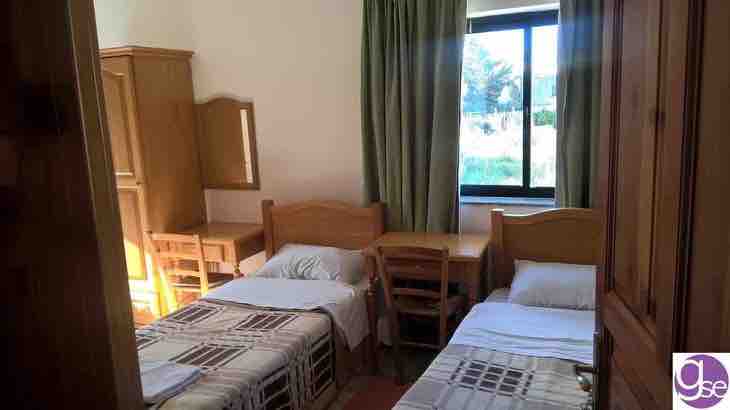How to Choose a Language School Abroad

We've gathered all the tips on how to choose a language school abroad. What criteria to use and how to make the best choice of a language school overseas. Read our article on the blog.
The choice of a school for learning a foreign language is a step that cannot be avoided if you have decided to go abroad to learn a foreign language's goals differ - to improve their conversational level, to prepare for an international language exam or just to relax and spend time usefully. The reason for the importance of the right choice is obvious: a school with a low level of teaching will only hinder the realization of the set goals.
Step-by-step choice of a language school abroad
So, let's figure out what to consider when choosing a language school abroad first and foremost.
Determine the type of language program
Understand what you want to study. The main rule: if you don't know which course is necessary, choose a general one (general English or Spanish, and so on). Such a course is sometimes called "standard" or "intensive" depending on the number of hours. Those who need a specialized curriculum know about it.
Determine the budget
If you are not limited in funds, skip this item. However, the cost of language courses for adults abroad is a serious factor for many. Often, future students make a decision based on the cost of classes. This is the right approach, but don't forget about the cost of housing and daily expenses in a particular city or country.
You will have to spend money on transportation, food and other little things. Prices abroad and in your city can differ greatly. Finally, look at the cost of airline tickets. Also, don't forget about the cost of a visa, if it is necessary for study. For example, a British visa is considered expensive. If you want to go to London for a week, you will probably have to pay for a visa as much as for a course lasting one week.
Consider possible countries for learning a foreign language
If you live in Europe, you don't have to go to England to learn English. Malta and Ireland are alternative options. French is learned not only in France, but also in Switzerland and Belgium. German is taught in Germany and Austria. In addition, if you want to combine a vacation and improve your language, consider exotic options. For example, there are many English language schools in South Africa, and in every country of Latin America there are Spanish schools.
Choose a city
As a rule, language schools are located in tourist centers. However, if you want solitude in the countryside, you will find such options as well. Use our map and explore offers outside of big cities.
Determine the list of schools
What to pay attention to? First, carefully read the description of each class. Like any educational institution, language schools are proud of their history. If the center is more than 30 years old, you will definitely read about it.
Secondly, pay attention to the accreditation of the school. Any accreditation is issued on the basis of clear criteria that the school meets. Thirdly, look through the list of equipment. Free Wi-Fi no longer surprises anyone, but the presence of a library or computer lab characterizes the school well.
Compare language courses
At first glance, the course descriptions make the schools similar. But if you look closely, you will see that the curricula differ:
- Duration of the academic hour (40 - 60 minutes).
- Differences concern the essence of language programs abroad. Yes, in two schools you see a business English course, but in one school it is a course for economists, in the other - for sales managers. The medical English course is more often intended for medical students, but some programs are designed for nurses. In other words, read the course description and you will understand for whom it is intended.
- Make sure of the maximum number of students in the class. The more people there are in the classes, the less your chances of being active. If each of the 20 people answers the teacher's questions for 3 minutes, it will take an hour. 10 people will cope with the same task in 30 minutes. Sometimes schools indicate the average number of students. But keep in mind: if you plan to study during the peak season (for example, in Europe in summer), you are most likely to get into a group with the maximum number of students. Believe me, it's harder to study with 16-18 students in a group than with 10.
- Make a choice.
As you can see, the choice of a foreign language learning program requires time for planning and selection, but the booking process and subsequent actions do not present any difficulty.



